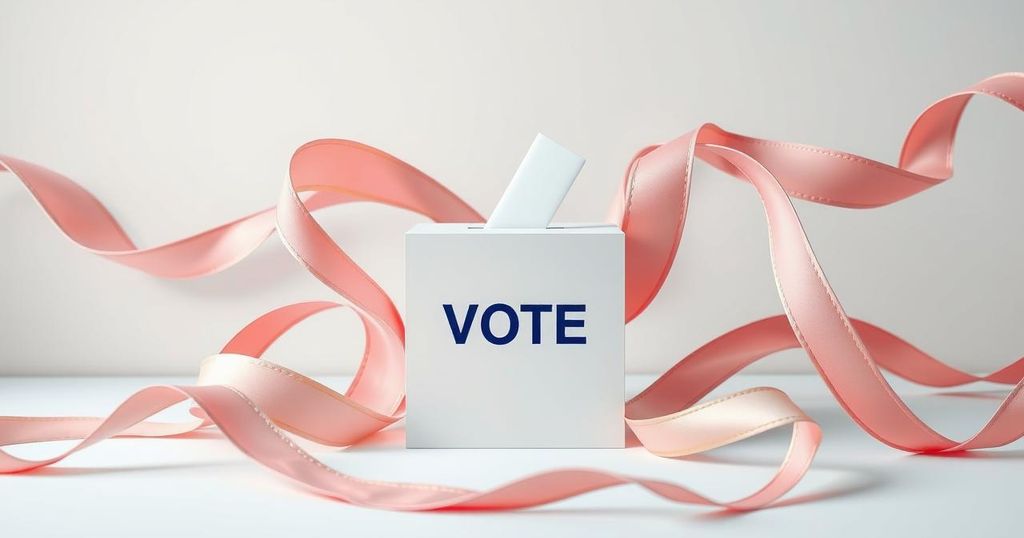Ecuador’s General Election: Voters Face Choices on Crime and Governance

Votes are being counted in Ecuador’s general election where 16 candidates, including Daniel Noboa and Luisa González, seek the presidency. Noboa’s policies focus on strict anti-crime measures, while González aims to revitalize the country and address major issues such as security and education. The outcome may lead to a runoff scheduled for April 13 if no candidate meets the required vote thresholds.
Polling stations have closed in Ecuador as votes are being tabulated in the general election featuring 16 candidates for the presidency, including the incumbent, Daniel Noboa, and his principal rival, Luisa González. According to the Constitution of Ecuador, a candidate must secure more than 50% of the total votes to win outright in the first round, or at least 40% with a 10 percentage point lead over the runner-up. Should these requirements not be fulfilled, the two candidates with the highest number of votes will proceed to a second round, provisionally slated for April 13.
This election will determine whether the country will maintain Noboa’s stringent measures against crime or transition towards an alternative leadership under González. Noboa, who ascended to office in a snap election to complete the term of his predecessor, Guillermo Lasso, has encountered various crises during his tenure, including extensive states of emergency and military deployments to counteract gang violence. He has also initiated the construction of a new maximum-security prison following a notorious escape by a criminal leader last year.
Luisa González, the 2023 election’s runner-up, is closely affiliated with former leftist President Rafael Correa, who has exerted considerable influence on Ecuadorian politics. With her campaign titled “Revive Ecuador,” González has asserted that she will tackle the drug trade with the same vigor as Noboa, promising to address this critical issue.
The principal challenges confronting the eventual government will encompass security, economic issues, a nationwide energy crisis, and international relations. Santiago Basabe, a notable analyst at the Universidad San Francisco de Quito, remarked, “Security is the biggest problem the government has had, but in a country with huge social inequalities like Ecuador, I believe that among the priorities of the less advantaged sectors are, in addition to security, health and education.”
This article is ongoing and updates will continue to emerge as events unfold in Ecuador.
In summary, Ecuador’s general election is pivotal for determining the nation’s approach to crime and governance. With Daniel Noboa advocating for stringent security measures and Luisa González proposing an alternative strategy rooted in addressing the drug trade and social inequalities, voters face a significant decision. The results will have far-reaching implications for the country as it addresses pressing challenges from security to economic stability and social justice.
Original Source: edition.cnn.com








